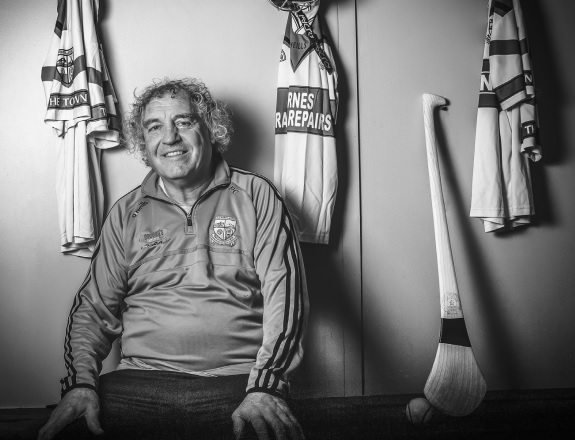The following is an extract from Pat Critchley’s new book ‘A Coaching Way – Insights, Strategies and Tools for Successful Coaching’
Are we coaches of great drills?
I have observed coaches come back from a coaching workshop and rave about a great drill they saw. They can’t wait to try it out with the U-14s on a Tuesday night.
It’s pretty complicated but they should handle it. At first, they don’t handle it. Players forget which line they are supposed to be in after the pass. The skills required break down when pace is injected into the drill, but, it’s only their first time doing it.
They persevere and after a few weeks, the players can do the drill pretty well. That is, they all remember where everyone goes. The skills still break down but not as much as on the first night.
What have the players learned from the experience? Perhaps, they have learned how to execute the drill.
What if the workshop tutor hadn’t show the drill at all but had emphasised that we, as coaches, should analyse our team’s performances and plan our sessions from the analysis?
What if the coaches had been asked to do that analysis of their last game as part of the workshop and plan their next session from that analysis.
In this circumstance, would that particular drill be part of the session at all? It might not have been appropriate to what the team needed to focus on at that time.
A well thought out session, with emphasis on an area for re-enforcement and an area for improvement, could have included focused drills for skill, breakdown drills, breakdown games and phase games.
I wonder would what the players would have learned in that session? Probably a lot more than a drill.
We need to be careful we don’t become coaches of great drills.
We may get great satisfaction that everything in the session is hyper-organised and runs like clockwork.
However, we have to reflect on how effective our sessions are on re-enforcing and developing our game plan. Everything we do, including drills, need to fit into the overall purpose of improving our performance; improving how our team plays.
When I was tutoring at a coaching course in Heywood College, the coaches had to teach a skill to a group of fellow coaches acting as players. We would ask the player coaches for feedback, ask the coach for feedback and I would then summarise and might offer a further insight.
One of the coaches set up a very complicated drill but the player coaches were not executing well and it was breaking down.
Even though it could have felt embarrassing, the coach stopped the drill, simplified it and began again. It was the best piece of coaching all morning.
The coach was thinking on his feet, knew what he wanted the players to learn, recognised that the original drill wasn’t achieving his aim, adapted the drill and got back teaching.
The importance of the coaching environment
Perhaps the most important role for the coach is to create and nurture a coaching environment where everyone involved can develop and be successful.
Living out our values plays a huge part in this regard in relation to team cohesion.
When we reflect on how we coach, these values are to the fore. They are closely linked to key characteristics which the coach needs to bring to the table. Just as a song can be transformed by the interpretation and delivery of the artist, so the coaching environment can be transformed by the focus and delivery of the coach.
Coaching can bring us magic moments, but it isn’t easy.
It requires passion and enthusiasm, hard work, rapport and empathy, resilience. We need to be organised yet we must also be prepared to go off script and go with our gut feeling as to what is right for a particular moment in time.
When we create a coaching environment with these characteristics and with sound values, our players and teams will mirror them.
‘If you work is not fired with enthusiasm, you will be fired with enthusiasm’ – John Mazur, New England Patriots
This quote comes from the highly-charged professional game that is the American NFL. Even with enthusiasm, if results are not immediate in the NFL, NBA, Premiership or any of the big professional leagues, then coaches get fired and players get traded.
This is despite the fact that it takes time for a coach to imbed their philosophy and game plan in a team. It is argued that if Alex Ferguson was beginning with Manchester Utd today, that he would have lasted his first four years of results. He went on to become the most successful manager in Premiership history.
I do believe that, at every level, it is essential for coaches to be fired with enthusiasm and passion for the game and the team.
Despite what may be happening in our lives, we must leave that behind us for the duration of the session and dedicate all our energy and enthusiasm to improving the players and the team. We must be the main driver. The players will react to our mood and our enthusiasm.
When preparing our Transition Year students for coaching in the Primary School, as part of their course, I would ask them to think of themselves as a mirror for their class group. The children will mirror our movements and enthusiasm.
I told them the story of Eddie Mahon walking into his Irish class in Ramsgrange Community School. He had just got to the teacher’s desk, hadn’t spoken or even opened a book when one of his students remarked, ‘in bad form today, sir?’.
Eddie said he was in bad form. The students had read his body language.
They will read our body language, voice, mood and react accordingly, sometimes even sub-consciously.
If we are sitting down, shoulders hunched, not projecting our voice, their efforts will deflate. However, if we are in the thick of the action, encouraging, cajoling, praising, high fiving, then they will be buzzing.
When both coach and players are buzzing, it is a great place to be.
‘A Coaching Way’ is available to buy in All Books in Lyster Square in Portlaoise or on the All Books website here.























